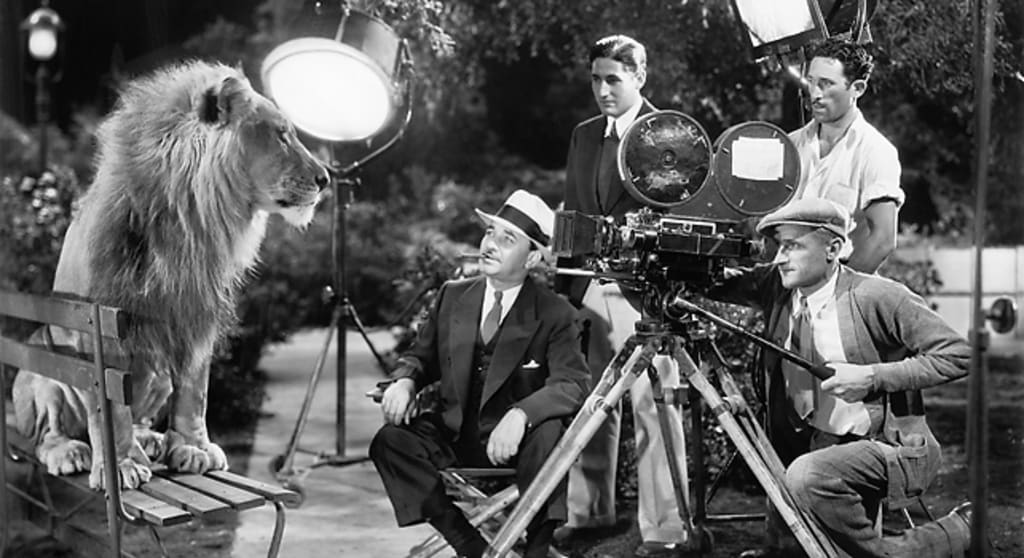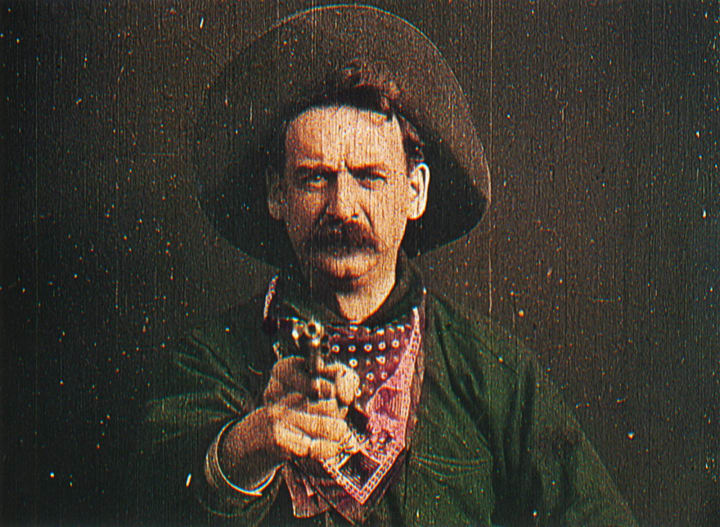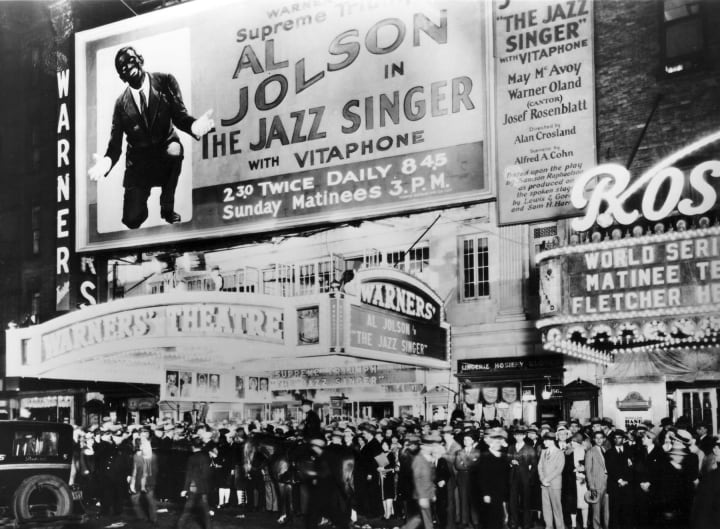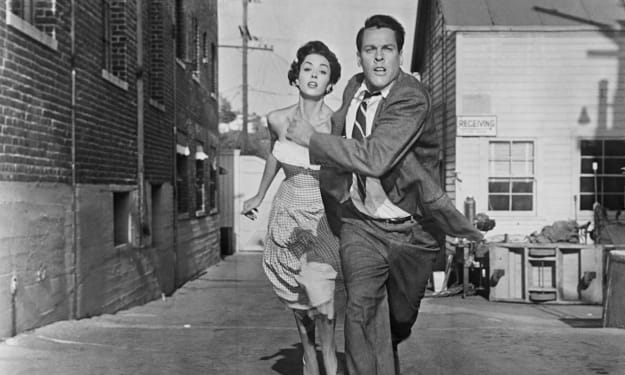The Origin of the Movies
A brief history of Hollywood's humble beginnings.

In the early twentieth century, the birth of the studio system was driven by technology. There was a newfound ability to make, edit and distribute moving pictures.
This industry emerged the same time that the new wave of immigrants came to the United States, which was a major influence on all these changes. Millions of people came from Southern and Eastern Europe (Greece, Italy, Poland, and Russia. They also didn't speak English.
At the turn of the century, more Americans had leisure time available. Those who worked in urban landscapes had a defined workday. There was less time spent working in 1920 than there was in 1880.
With more money and more leisure time, movies became available in every way they could.

Hollywood Studios seen overhead in 1922. Courtesy of Wikipedia
Immigrants shaped the movie industry.
As far as implication, content, structure, organization, and the industry in general goes, at least. Heads of every studio in the beginning (big names like Columbia, Paramount, Warner Bros, etc.) were immigrants. They felt this was the best way to assimilate and Americanize. Banks already established before the immigrants arrived wouldn't fund the movies, but immigrant banks would. Overall, the films they made were quintessentially American.
Immigrants embraced the power structure of America, the early American values, and rejected their immigrant pasts in order to really get into the industry. Movies became the engine to assimilation.
Movies were shown in nickelodeon storefronts. A projector and a white sheet were set up for people to come and watch movies.The films were short, silent and accompanied by orchestral music. Action and subtitle cards appeared on screen written in English.
There was no language needed to understand them. Silent movies became unbelievably popular. Action movies were always a crowd-pleaser, and still are today. What you saw was all you needed to know. Actors were mimetic, and the music made the messages universally understood.
Movies were originally short, about one minute long. Therefore, when movies were produced and shown in theaters, in order for studios to make money, you didn't have to pay too much (relatively speaking) to get into the industry and invest.
People thought the images onscreen were real, like in the film The Great Train Robbery. The final scene of the film is a cowboy shooting his gun directly at the screen. Those who didn't realize that movies weren't real thought they were about to be shot in theaters. Needless to say, people were blown away by the film and loved the thrill.

Courtesy of FilmmakerIQ
The movie business was originally volatile.
Thomas Edison invented the Kinetograph, a movie camera that used celluloid film. He didn't know what to do with it, and thought it would be a passing trend. Edison was horribly mistaken.
He wanted to set up a monopoly on film. Immigrants thus moved to California to establish themselves in the industry to escape the Edison Patent Trust, which gained control of the entire movie industry in America from 1908 until 1912.
In 1910, Hollywood became the movie capital of the world. The studio heads were immigrants who got into the movie industry at the right time.
Adolph Zukor was a Hungarian immigrant who opened Zukor's novelty fur company in Chicago, using that money to invest in the film industry. He installed "peep machines" in his shop that were so successful, he sold the fur business then started to exhibit motion pictures and made them himself.
His motion pictures became the "told stories," such as The Great Train Robbery, The Count of Monte Cristo, and Queen Elizabeth (the latter two which were based on French novels).
In 1916, Zukor and Jesse Lasky (producer) bought Paramount Pictures and ran the company for the rest of their lives.
Louis B. Mayer, a Russian immigrant--who did not know his own birthday, chose July Fourth as his--started a salvage business. In 1904, his path changed upon seeing Margaret Shenberg's (a theatrical producer) photograph, and moved to Boston to propose to her. This began his shift into the motion picture industry.
In 1916, he gained the rights to distribute Birth of a Nation in New England, and even though it was highly controversial, it was best-selling. Mayer eventually became the VP to Metro-Goldwyn (which eventually added his name to the company). His films embraced American virtue, family, and tradition.
In 1903, Harry, Albert, Sam and Jack Warner (known as the Warner Brothers) got the rights to exhibit The Great Train Robbery in Ohio. They then decided they wanted to make movies themselves.
In 1927, they made the first talkie film, The Jazz Singer, which, long story short, was all about Americanization and assimilating into the culture.
The Jazz Singer became an unbelievable hit, ultimately revolutionizing the movie industry. The Warner Bros. stock increased, and they "sold" assimilation.
Carl Lemley found Universal Pictures, and hired his family. William Fox, a Hungarian immigrant, founded 20th Century Fox.
Harry and Jack Cohn founded Columbia Pictures in 1923. They were responsible for films with the most quintessential American themes, such as It's A Wonderful Life.

Courtesy of Red List
Overall, the film industry became the most distinctive industry in the history of the United States. It was responsible for so much of the popular culture, even today. It was created and sustained by immigrants whose desire to be assimilated translated into the movies that they made.
Movies affirmed traditional American values, with America being a magical place, complete with a "Hollywood Ending."
About the Creator
Marina Caitlin Watts
Marina loves Frank Sinatra and hates decaf coffee. The native New Yorker and Cornell grad knows every word to "Ferris Bueller's Day Off" and thinks Shakespeare is cool. If you need her, she's waiting for Godot. Twitter: @marina_caitlin






Comments
There are no comments for this story
Be the first to respond and start the conversation.